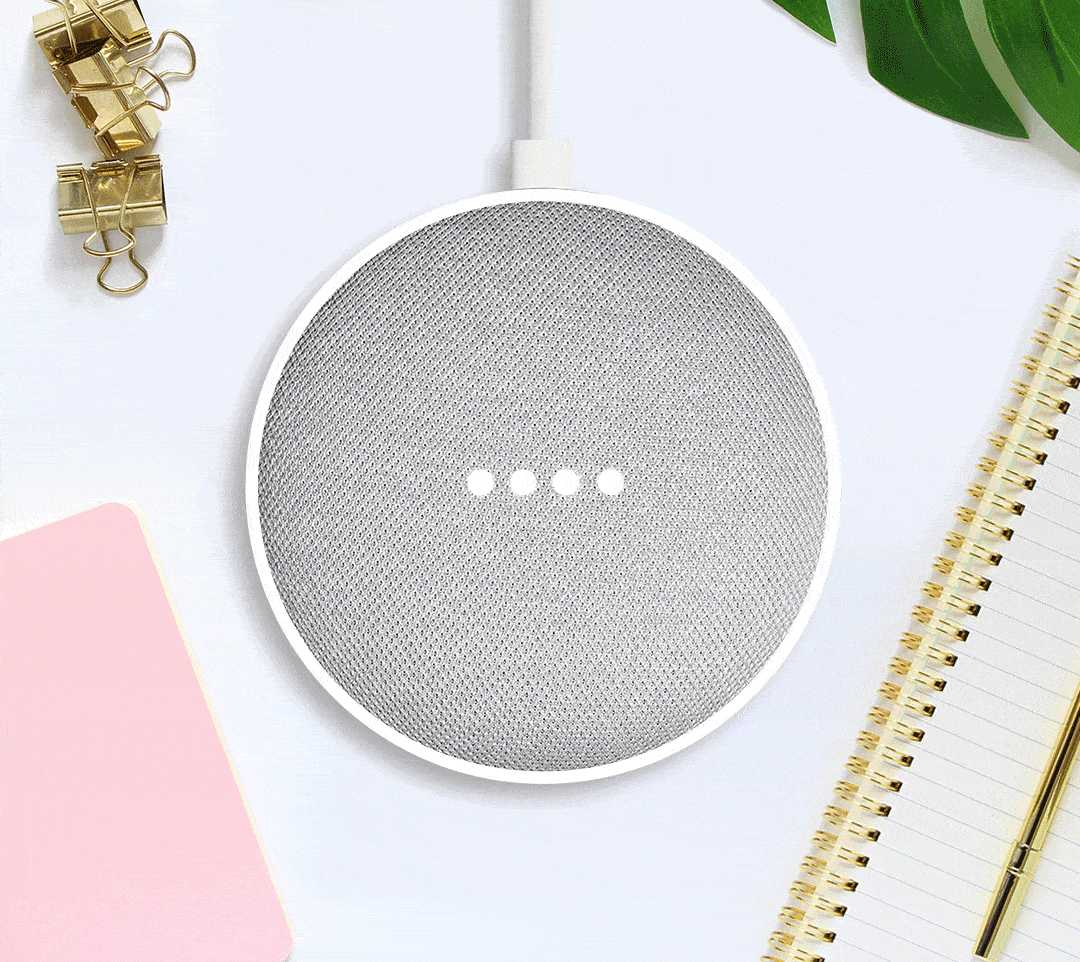
Only 5% of Americans worked from home in the United States in 2017. But now that the COVID-19 crisis has hit full-on, it seems that many companies might be making the temporary work-from-home situation a viable long-term solution. While working from home was already a reality for many Americans, there are millions more who aren’t seasoned vets, and are looking for work from home tips to keep them from going insane in their new routine.
Look no further! We’ve had our fair amount of experience doing work from home, with many ninjas working from home permanently for years, and we’ve come up with several tips that should help reduce stress while helping you adjust to this brave new world.
8 Work From Home Tips to Reduce Stress
1. Fully Accept That You’re Not on Vacation
You might have heard people trying to sell work from home as the ultimate dream. “You’ll have time to be with your kids and earn money,” they claim. But these statements leave us wondering if those touting these dreams have ever worked from home!
Sure, for some people it’s a much better set-up than for others. You get to ditch the commute. You can sleep in. You don’t have to wear anything but your comfiest PJs for that next meeting. After a few days though the excitement wears off and your left with the creeping realization that this wasn’t what you had hoped.
Remember: working from home isn’t like being on a long holiday.
You’ll still need to get work done, and for many people, it’s even more difficult to focus. There’s no clear delineation from work and home any longer, and if you can work at any hour of the day, you may just find yourself doing so.
Don’t get sold on the idea that you’ll be sitting watching Jeopardy reruns while you play tea with your toddler. You won’t be. Many work doubly as hard to prove they’re making things happen from the comfort of their living room.
2. If You Have Young Kids Hire a Parents’ Helper (or Work Out Something with Your Spouse)
If you have young children during the lockdown you’re learning firsthand how impossibly challenging juggling working while babysitting can be. When trips to the grocery store start to feel like exciting adventures you know that you’ve been trapped in the same space for too long.
First, allow yourself some grace. These aren’t ideal conditions, but if your child is even remotely smiling or laughing, then you’re doing an excellent job.
Second, while your children may not need to go to daycare if you’re working from home, you also need to realize that you can’t keep 100% of your attention on them. If you try to be the best parent and best home worker possible at the same time, you’ll run yourself into the ground. And you’ll be giving 50% or less to both.
Third, be creative! With the COVID-19 crisis, hiring a parents’ helper is not simple, we get it. But during “regular” times, doing so can be extremely helpful. In the meantime, you might have to improvise! You could, for example, enlist your oldest child to help look after the little ones (if they use their leverage to charge you an arm and a leg for their services… well, you might have to fork it over and take pride that you’ve raised a savvy and resourceful child). Or, you can coordinate with your spouse or partner, each looking after the children at specific times so that you can both get your work done.
Fourth, embrace what works. While we many parents publicly bemoan apps as a babysitter for kids, the fact is that we’d have likely given our left leg for such magical technology when you were that age. As a parent your goal is to keep your kids safe and happy, and technology can provide an exceptional way for them to learn in fresh ways. Lean into new ways to learn and play, even if under “normal” conditions they might not be allowed. Things aren’t normal right now.
3. Change Your Clothes
We’re not saying you have to get all office-ready, but changing clothes can help change your mindset.
If you get up and start working in the same clothes you slept in, it can make it more difficult to delineate between work and home. It may make the temptation to procrastinate or do things like taking a nap or cleaning the house look much more appealing.
As such, you should put on a different set of clothing before you work each day. You can still put on PJs, but as long as you know they’re “work PJs,” it can significantly shift your concentration and goals.
4. Create a Schedule
When other people in your home have to go to school or to work outside of the home, creating a schedule can be much easier. Your schedule will likely mirror theirs, as you’ll want to be finished by a certain time each day. You’ll also likely adopt a similar sleeping pattern to your family.
With COVID-19 and everyone being home with you, this can make it much more difficult. In some regards, does time even matter anymore?
Theoretically, it doesn’t matter when you get things done if your job is assignment-based, as long as you do it. But having a schedule will make you feel more productive and make the days feel less like they’re bleeding into the next.
A schedule can also keep you more productive, especially if you create a task-oriented one. For example, you may decide to set aside 9 to 11 to work on your inbox. Then, schedule 1-3 to work on new assignments. This gives your day a greater sense of purpose instead of feeling as though you’re simply slugging through it aimlessly.
5. Have Your Own Designated Space
We get it, not everyone lives in a mansion where they can have their own en-suite for their office. If your house has that, use it. But if it doesn’t, you can still make do in other ways.
You should have your own designated space where you work. It shouldn’t be your bed, as your bed should be reserved for… well, bed things. Instead, you should work at a desk, ideally in a room away from others.
If you can, decorate your space to make it yours. It sounds silly, but 5-minutes of moving things around can transform the dining room table into your new private work oasis.
This puts your mind into “work mode.” It also tells others in your house that you’re working now and therefore, they cannot bother you unless it is an emergency.
6. Be Strict When It Comes to Others Who Want Your Time
We already stated that many people have an overly idealized version of what working from home is. Because of this, you’ll get lots of pressure to do things you don’t have time for. But only you can work out what schedule is best for you. And only you can work out what you can and can’t do without your work suffering.
Emphasize that you’re working from home, not sitting at home. With this, you’ll need time that’s parsed off where you can’t or won’t be bothered. If needed, make a sign for your family when you can and can’t be disturbed.
Try not to take personal calls during this time, and be strict about when you’re on, and off, the clock.
7. Ask For Help When You Need It
Surprisingly, it often takes more communication to get things done when remote.
While you may have been able to swing by your coworkers office to chat about that hot new Netflix series, and covertly get your questions answered on the side, working from home doesn’t allow for these luxuries. This means that the same team may need more help to achieve the same results, especially when working against an urgent deadline.
That’s why asking for help is very important, as your boss or teammates might not know you need it. Clarifying what you need in advance to do a spectacular job is the sign of a strong team player. You shouldn’t be working all hours of the day in secret hoping things will change.
That’s even where outside helpers like Cubicle Ninjas can come in too. If you don’t currently have the internal muscle or skill set in house, we can quickly hop in to tackle initiatives without missing a beat.
Saying “I need X or Y to do my best work” isn’t a weakness, it’s a strength. Pay close attention to your projects and clearly communicate your needs well in advance to ensure working from home can deliver the exceptional results that you’re known for.
8. Set a Time to “Switch-Off”
Many people who work from home, or own their own business, struggle with when to switch off. Work emails don’t only come in from 9-5 Monday through Friday but can come in at any time of the day or night.
Because of this, you may find it tempting to sit in bed answering emails at 11 PM instead of going to sleep, or getting up at 5 AM to answer a phone call.
If you don’t have strict boundaries set that dictate when you switch on and off, you’ll never “switch off” and constantly be in work mode.
For those feeling dread when they hear their phone chime: we have a solution. It is incredibly important that you set a time to turn off your work electronics or to log out of your business email. Turn off notifications. If you can, avoid your new work space altogether. Separating your personal and work life isn’t just healthy, it’s beneficial to your job. You’ll be more recharged to solve problems, versus fearful of another late night fire drill.
If you don’t draw clear boundaries, you’ll find work bleeds into your personal and family life, and your quality of life will suffer.
How Do You Feel About Our Work from Home Tips?
We hope these work from home tips will help keep you productive during these uncertain times, and beyond. For many people, it takes a while to get the knack of remote working, but once you do, you may find you prefer it to the office. If you’re just starting your work from home journey as an entrepreneur, check out our article on tips for designing a high-conversion site for more useful information! Or if you’re looking to start a project, Cubicle Ninjas is here to help! Just fill out this contact form, or give us a call at 1-888-77-NINJA. Let’s make something amazing!





















